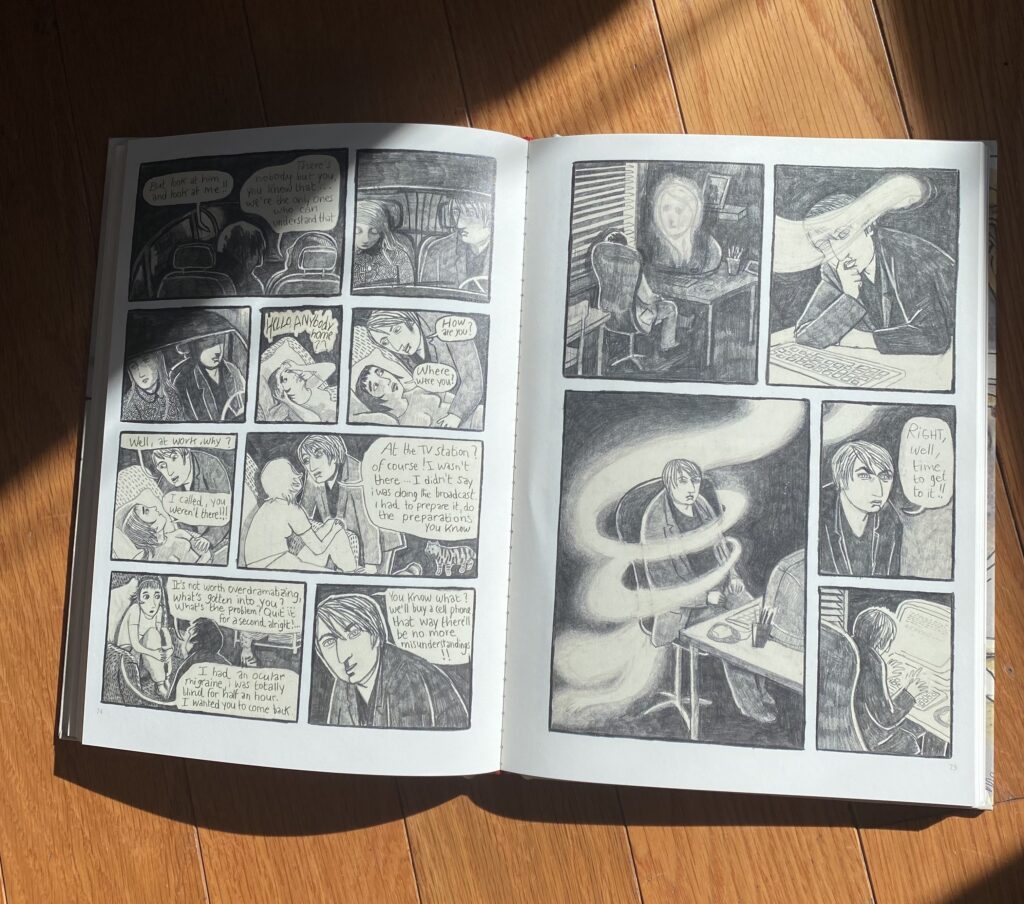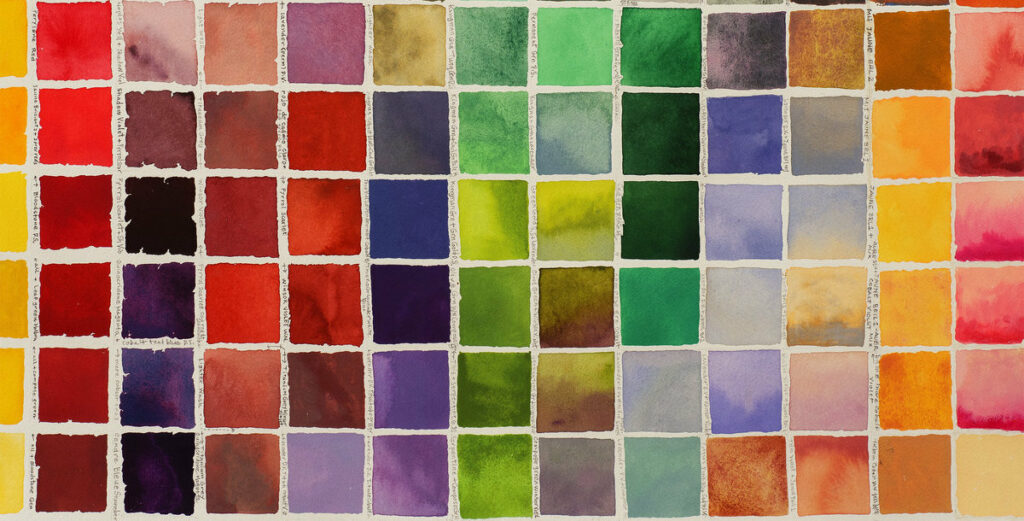The Review’s Review: Spiky Washes
A Seattle Queer Film Festival screening of the documentary film No Straight Lines, which profiles five crucial queer cartoonists including Rupert Kinnard and Alison Bechdel, brought me back into the graphics circuit. After reluctantly reading the final panel of Dykes to Watch Out For last weekend, I’ve turned to Pretending Is Lying, a fractured graphic memoir from the Belgian artist Dominique Goblet and the first English translation of her work. Goblet is as invested in her own fraught filial relationships as she is in the work of memory, and the emotional texture she achieves with only graphite, charcoal, and a little ink is stunning—soft leaden shadows, aggressive gradient shading, expressions rendered in jagged lines, dialogue scrawled in restive script. Inaugurated in 1995 and ultimately published in 2007, the book became a kind of living artifact to Goblet’s L’Association editor: “This book smells of oil, grease pencil, humid wood, the disorder of the street market; it exhales twelve years of well-tempered promises, carefully untied and resolutely wrapped up.” —Jay Graham
This week I’ve been basking in the spiky sonic wash of Music for Drums and Guitar, a duo album by guitarist Miles Okazaki and drummer Dan Weiss, two of the leading figures in edgy contemporary jazz circles. Both are absolute masters on their instruments, and both have released many albums as leaders of their own groups, often with each other as members, having collaborated for more than twenty years. This self-released album (which was recorded during the pandemic) comprises two suites of music, one by each musician; the songs are jangly, sometimes heavy, borrowing from hard rock and metal as much as jazz, full of surprising musical details. One has the sense that not only can Okazaki and Weiss anticipate each other’s next moves, but that they are both deeply dedicated to realizing each other’s artistic visions. —Craig Morgan Teicher
“Imagination is delicate,” Teju Cole observes in an essay on grief and the form of the photograph early on in his new collection, Black Paper: Writing in a Dark Time. “It imposes decorum. A photograph insists on raw fact, and confronts us with what we were perhaps avoiding.” In these thought-provoking essays on image-making, the rightward lurch of global politics of the last five years, race, the migrant crisis, artists and thinkers ranging from Caravaggio to Said, and more, Cole writes as though he were taking a photo: he is insistent on highlighting the raw facts, the situation laid bare. Through such clarity, the reader cannot look away. —Rhian Sasseen
Copyright
© The Paris Review


